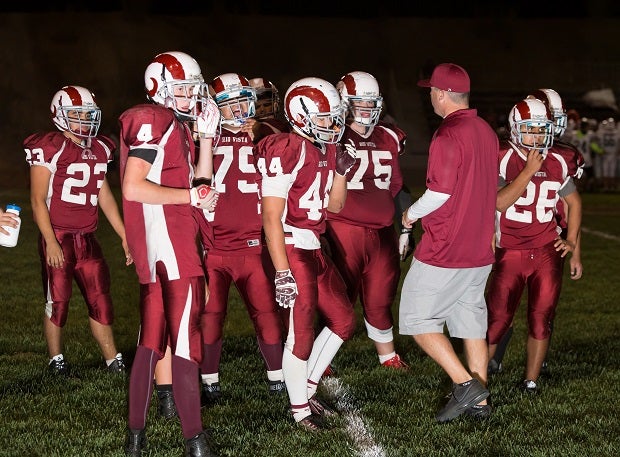Video: Top 10 Football Plays of the Week // Week 8Steve Montoya and Chris Stonebraker tackle the best highlights from the past week.
Sometimes there are games that end with a lopsided score. Sometimes the lopsided score is because of the way that coach called the game, offensively or defensively. Sometimes the lopsided score is simply because the two teams were not evenly matched. Sometimes that score is lopsided because adults forgot it was a kid's game.
I once beat a team 92-6. It was one of the most frustrating games of my life. Both teams dressed out and played 16 players. This was small school football here in Southern California. My team threw four passes the entire game. In fact, we were a wing-T offense. We had a lot of success in the first quarter, and the score was 68-0 at the half. We quit throwing the ball during the second quarter. We quit returning punts in the second quarter because every time we returned a punt, it was for a touchdown.
There are things that a coach can do in a game to keep the score down. Stop returning kicks, for instance. Special teams is one of the areas you can take advantage of the yards the other team will give you. If a team happens to score a touchdown and the game's a blowout, you can have a returner, catch it and take a knee. One thing this does is it forces your offense to work on their offense. It allows other kids to get in the game, to work on the offense.
I saw a blow out a few weeks ago and the team was returning kicks. The success they had returning punts gave them short fields. Therefore, the offense did not have much time to work in that game. Instead of thinking thoroughly about the process of a blowout and trying to make the most of this situation for their team, they just reacted how the game was going.

It's a good idea to have an plan of action in case the game you're playing becomes a blowout.
File photo by Richard Flink
That's why it's good to have some type of plan in place if you are getting blown out. "Here's what we will do, here's how we will handle things." It's a really good idea to have something like that in the back of your mind, especially if you think you are going to go into a game and it might be a blowout.
I was blasted on social media when that game happened. The national media jumped on it. Thousands commented on it, people who weren't even at that game. Many of them suggested that we ran the score up on purpose. Many suggested that we could have done more things to keep the score low. That just was not the case. When it was 68-0, the other coach refused the running clock. That was ridiculous. Thankfully, it was mandatory in the fourth quarter.
I am not suggesting that you take your center and make him the quarterback, as some people suggested to me after that game. I think that's ridiculous and could end up getting players hurt. If kids are playing out of position there is no doubt you are increasing their potential for injury.
However, you can think critically about a plan that will help to keep the score low. Run the football, take time off the clock. Take as much time off the clock as you can. Perhaps practicing your prevent defense is something that you need to do. All of a sudden, you're allowing them to gain some yardage and move the football. That's not a bad thing. You're practicing one of the phases of your game. So think critically about how your program can't keep to score low.
Help respect the game and the opponent. Should this situation arise in one of your future games, if you don't think through how you're going to approach it, you might not be able to figure it out in the middle of the game. Make sure to also think critically about your depth chart, and how you're going to get your starters off the field in a timely manner so as to avoid injury and get your backups time in the game to help their development.